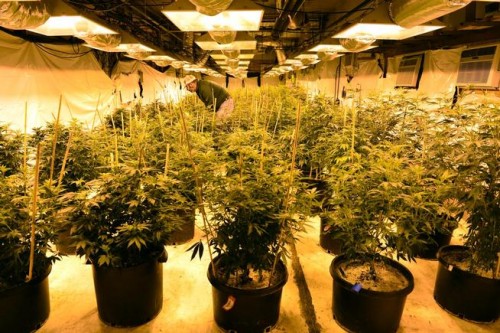The Drug Enforcement Administration could announce in the next couple of months a potentially landmark change to marijuana’s status under federal law.
In a letter the agency sent to federal lawmakers this week, the DEA says it plans to release a decision on rescheduling marijuana “in the first half of 2016.” Cannabis is currently classified in federal drug laws under Schedule I, the most restrictive level.
Moving marijuana to a less-restrictive schedule would boost research on the drug and the development of marijuana pharmaceuticals that doctors could prescribe, experts said.
But it would be unlikely to make raw marijuana possession or cultivation by individuals any less illegal under federal law. And it likely would do little to end the standoff between the feds and the states that have legalized cannabis.
The DEA and the rescheduling of cannabis
Oregon congressman: Pot ‘should not be categorized as a Schedule I drug’
From the Ivy League: This Ivy League doctor sees cannabis’ medical promise and wants it rescheduled
Weed news and interviews: Get podcasts of The Cannabist Show.
Subscribe to our newsletter here.
Watch The Cannabist Show.
The DEA’s letter, written in response to questions from several members of Congress, was obtained and first reported by The Washington Post. A spokesman for the DEA said he could not comment on the looming decision.
Allen St. Pierre — the executive director of the pro-legalization group NORML, which has been asking the DEA to reschedule marijuana since 1972 — said the decision could be a signature moment of President Barack Obama’s presidency, which has seen a dramatic shift in public attitudes about marijuana.
“It’s probably the last act having to do with cannabis in his tenure,” St. Pierre said.
But the decision also would be just a single waypoint in the complicated journey a drug must undertake to be rescheduled.
Federal law categorizes drugs into schedules based on things such as a drug’s medical use and its potential for addiction. Schedule I drugs, such as marijuana and heroin and LSD, are considered under the law to have no accepted medical use and a high risk for abuse.
More than four years ago, the governors at the time of Washington and Rhode Island petitioned the DEA to reschedule marijuana, kicking off a lengthy review process that wound through the DEA and other agencies. In its letter this week, the DEA said U.S. Department of Health and Human Services officials have made a recommendation to the DEA about whether marijuana should continue to be considered as having no medical value. The letter does not say what that recommendation is.
The next step is for the DEA to announce a decision on rescheduling. But that does not end the process.
DEA spokesman Russell Baer said, after such a decision is issued, groups that disagree with it can request an administrative hearing. The DEA would then reconsider its scheduling decision following that hearing and issue a final decision, which could be challenged further in court.

The DEA has denied three previous petitions to reschedule marijuana.
St. Pierre said moving marijuana to a lower schedule, “doesn’t really mean a whole hoot to legalization.” But placing marijuana in a lower schedule could have notable impacts.
Because it is so difficult for researchers to study Schedule I substances, moving marijuana into Schedule II — where it would reside along drugs such as cocaine — would open up research opportunities. That, in turn, could lead to the development of cannabis-based prescription drugs, St. Pierre said.
Dropping marijuana even further down into Schedule III — home to drugs such as ketamine — potentially would help marijuana businesses by allowing them to take a tax deduction that sellers trafficking in higher-schedule substances cannot claim, said Taylor West of the National Cannabis Industry Association.
But rescheduling marijuana would not make those businesses legal under federal law, nor would it give them access to banking.
“It is certainly possible they would just continue to operate at odds with the federal system,” West said of marijuana businesses.
St. Pierre said cannabis supporters also worry that rescheduling marijuana would have another impact: stalling the wider push for legalization.
“They don’t want to touch that topic with a 100-foot pole,” St. Pierre said of the federal government. “It’s much easier to give a little bit now on scheduling.”
John Ingold: 303-954-1068 or jingold@denverpost.com
